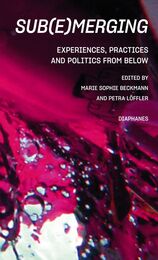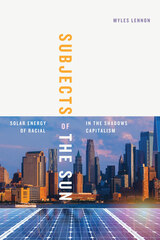5 books about Lindberg, David C.
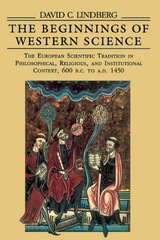
The Beginnings of Western Science
The European Scientific Tradition in Philosophical, Religious, and Institutional Context, 600 B.C. to A.D. 1450
David C. Lindberg
University of Chicago Press, 1992
This landmark book represents the first attempt in two decades to survey the science of the ancient world, the first attempt in four decades to write a comprehensive history of medieval science, and the first attempt ever to present a full, unified account of both ancient and medieval science in a single volume. In The Beginnings of Western Science, David C. Lindberg provides a rich chronicle of the development of scientific ideas, practices, and institutions from the pre-Socratic Greek philosophers to the late-medieval scholastics.
Lindberg surveys all the most important themes in the history of ancient and medieval science, including developments in cosmology, astronomy, mechanics, optics, alchemy, natural history, and medicine. He synthesizes a wealth of information in superbly organized, clearly written chapters designed to serve students, scholars, and nonspecialists alike. In addition, Lindberg offers an illuminating account of the transmission of Greek science to medieval Islam and subsequently to medieval Europe. And throughout the book he pays close attention to the cultural and institutional contexts within which scientific knowledge was created and disseminated and to the ways in which the content and practice of science were influenced by interaction with philosophy and religion. Carefully selected maps, drawings, and photographs complement the text.
Lindberg's story rests on a large body of important scholarship produced by historians of science, philosophy, and religion over the past few decades. However, Lindberg does not hesitate to offer new interpretations and to hazard fresh judgments aimed at resolving long-standing historical disputes. Addressed to the general educated reader as well as to students, his book will also appeal to any scholar whose interests touch on the history of the scientific enterprise.
Lindberg surveys all the most important themes in the history of ancient and medieval science, including developments in cosmology, astronomy, mechanics, optics, alchemy, natural history, and medicine. He synthesizes a wealth of information in superbly organized, clearly written chapters designed to serve students, scholars, and nonspecialists alike. In addition, Lindberg offers an illuminating account of the transmission of Greek science to medieval Islam and subsequently to medieval Europe. And throughout the book he pays close attention to the cultural and institutional contexts within which scientific knowledge was created and disseminated and to the ways in which the content and practice of science were influenced by interaction with philosophy and religion. Carefully selected maps, drawings, and photographs complement the text.
Lindberg's story rests on a large body of important scholarship produced by historians of science, philosophy, and religion over the past few decades. However, Lindberg does not hesitate to offer new interpretations and to hazard fresh judgments aimed at resolving long-standing historical disputes. Addressed to the general educated reader as well as to students, his book will also appeal to any scholar whose interests touch on the history of the scientific enterprise.
[more]
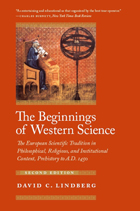
The Beginnings of Western Science
The European Scientific Tradition in Philosophical, Religious, and Institutional Context, Prehistory to A.D. 1450, Second Edition
David C. Lindberg
University of Chicago Press, 2008
When it was first published in 1992, The Beginnings of Western Science was lauded as the first successful attempt ever to present a unified account of both ancient and medieval science in a single volume. Chronicling the development of scientific ideas, practices, and institutions from pre-Socratic Greek philosophy to late-Medieval scholasticism, David C. Lindberg surveyed all the most important themes in the history of science, including developments in cosmology, astronomy, mechanics, optics, alchemy, natural history, and medicine. In addition, he offered an illuminating account of the transmission of Greek science to medieval Islam and subsequently to medieval Europe.
The Beginnings of Western Science was, and remains, a landmark in the history of science, shaping the way students and scholars understand these critically formative periods of scientific development. It reemerges here in a second edition that includes revisions on nearly every page, as well as several sections that have been completely rewritten. For example, the section on Islamic science has been thoroughly retooled to reveal the magnitude and sophistication of medieval Muslim scientific achievement. And the book now reflects a sharper awareness of the importance of Mesopotamian science for the development of Greek astronomy. In all, the second edition of The Beginnings of Western Science captures the current state of our understanding of more than two millennia of science and promises to continue to inspire both students and general readers.
[more]
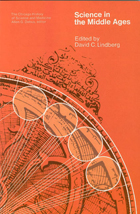
Science in the Middle Ages
Edited by David C. Lindberg
University of Chicago Press, 1980
Despite the intensive research of the past quarter century, there still is no single book that examines all major aspects of the medieval scientific enterprise in depth. This illustrated volume is meant to fill that gap. In it sixteen leading scholars address themselves to topics central to their research, providing as full an account of medieval science as current knowledge permits. Although the book is definitive, it is also introductory, for the authors have directed their chapters to a beginning audience of diverse readers, including undergraduates, scholars specializing in other fields, and the interested lay reader.
The book is not encylopedic, for it does not attempt to provide all relevant factual data; rather, it attempts to interpret major developments in each of the disciplines that made up the medieval scientific world. Data are not absent, but their function is to support and illustrate generalizations about the changing shape of medieval science. The editor, David C. Lindberg, has written a Preface in which he discusses the growth of scholarship in this field in the twentieth century.
The book is not encylopedic, for it does not attempt to provide all relevant factual data; rather, it attempts to interpret major developments in each of the disciplines that made up the medieval scientific world. Data are not absent, but their function is to support and illustrate generalizations about the changing shape of medieval science. The editor, David C. Lindberg, has written a Preface in which he discusses the growth of scholarship in this field in the twentieth century.
[more]
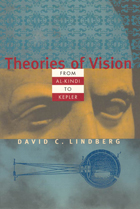
Theories of Vision from Al-kindi to Kepler
David C. Lindberg
University of Chicago Press, 1981
Kepler's successful solution to the problem of vision early in the seventeenth century was a theoretical triumph as significant as many of the more celebrated developments of the scientific revolution. Yet the full import of Kepler's arguments can be grasped only when they are viewed against the background of ancient, medieval, and Renaissance visual theory. David C. Lindberg provides this background, and in doing so he fills the gap in historical scholarship and constructs a model for tracing the development of scientific ideas.
David C. Lindberg is professor and chairman of the department of the history of science at the University of Wisconsin, Madison.
David C. Lindberg is professor and chairman of the department of the history of science at the University of Wisconsin, Madison.
[more]
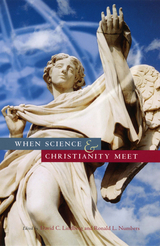
When Science and Christianity Meet
Edited by David C. Lindberg and Ronald L. Numbers
University of Chicago Press, 2003
This book, in language accessible to the general reader, investigates twelve of the most notorious, most interesting, and most instructive episodes involving the interaction between science and Christianity, aiming to tell each story in its historical specificity and local particularity.
Among the events treated in When Science and Christianity Meet are the Galileo affair, the seventeenth-century clockwork universe, Noah's ark and flood in the development of natural history, struggles over Darwinian evolution, debates about the origin of the human species, and the Scopes trial. Readers will be introduced to St. Augustine, Roger Bacon, Pope Urban VIII, Isaac Newton, Pierre-Simon de Laplace, Carl Linnaeus, Charles Darwin, T. H. Huxley, Sigmund Freud, and many other participants in the historical drama of science and Christianity.
“Taken together, these papers provide a comprehensive survey of current thinking on key issues in the relationships between science and religion, pitched—as the editors intended—at just the right level to appeal to students.”—Peter J. Bowler, Isis
[more]
READERS
Browse our collection.
PUBLISHERS
See BiblioVault's publisher services.
STUDENT SERVICES
Files for college accessibility offices.
UChicago Accessibility Resources
home | accessibility | search | about | contact us
BiblioVault ® 2001 - 2025
The University of Chicago Press


